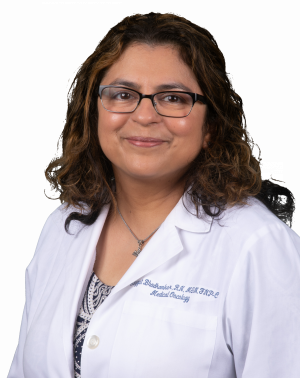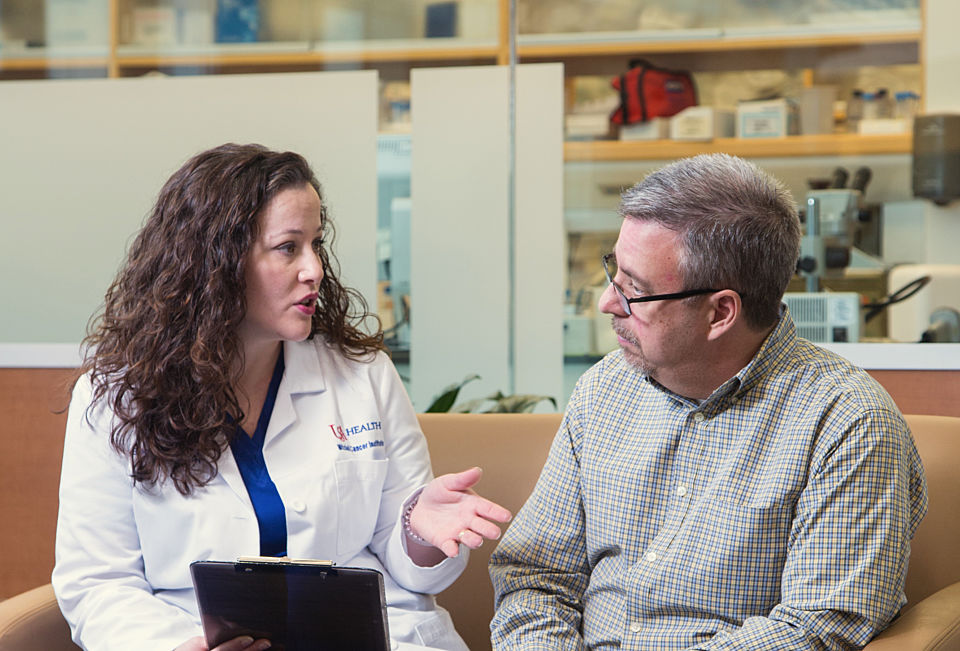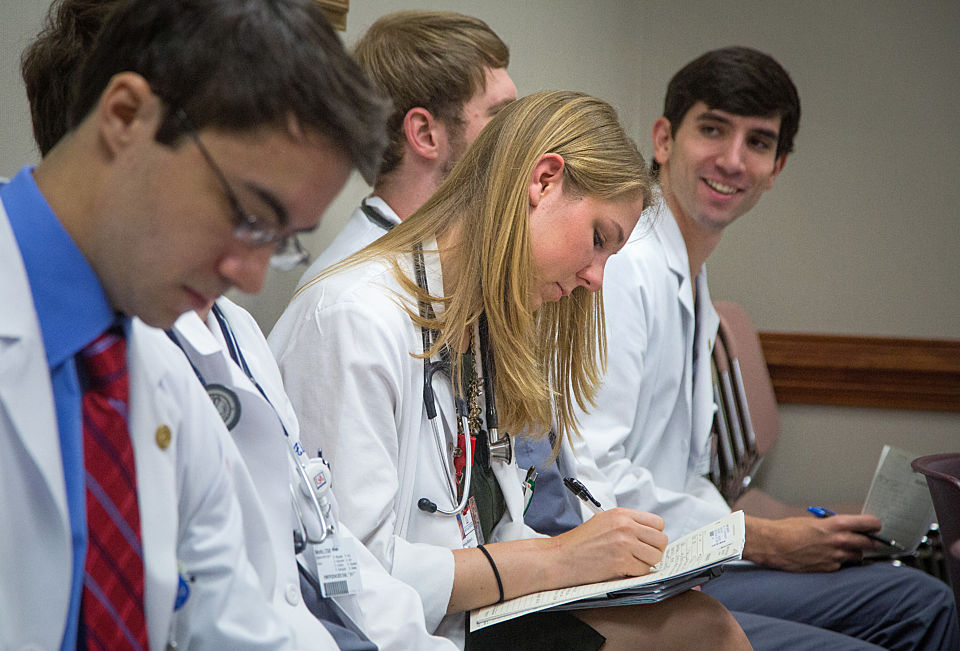Oncology Genetic Testing at USA Health Mitchell Cancer Institute
Multiple factors contribute to cancer. Genetic counselors provide consultations and customized evaluations for people who want to understand their personal and family risk for developing cancer. As a result, individuals are able to make informed choices about their health.
Who Should Get Genetic Testing?
People who opt for genetic testing generally fall into two categories.
- If a patient has cancer or previously had cancer, his or her oncologist may identify some issues that indicate a genetic factor contributing to the cancer. In these cases, genetic testing and counseling can either confirm or rule out the factor. This helps the patient and oncologist decide on the most appropriate course of action.
- Not everyone who undergoes genetic testing has cancer. The second group of people who seek genetic counseling haven’t been diagnosed with a specific cancer but do have a strong family history of cancer. In these cases, a genetic test can help determine any genetic factors posing risks and how patients might best safeguard their health and even prevent cancer.
What Happens During A Genetic Counseling Appointment?
Genetic counseling begins with an extensive interview to develop a detailed family history. This process helps determine what kind of genetic testing to perform. The actual test, in which a sample of your DNA is collected through a blood draw or saliva sample, can be done during this same appointment. The sample testing may take a few weeks.
For patients who have been diagnosed with certain kinds of cancer—ovarian cancer, metastatic prostate cancer, triple negative breast cancer, Wilms tumor, pheochromocytoma (cancer of the adrenal glands) and other rare cancers—a specific genetic test is conducted to confirm the diagnosis.
How Are The Results Used?
An appointment is scheduled for patients to receive the results. Depending on those results, you may receive a specific plan for monitoring your health. This might include increased or additional cancer screenings, preventative surgery options, chemoprevention medication and referrals to other specialists for consultation.
In cases where patients are already known to have a specific cancer—such as ovarian cancer, metastatic colon cancer and Lynch syndrome—the genetic test may reveal a specific genetic mutation that makes a personalized treatment plan possible. This information is shared with you and your oncologist so that you can receive the most effective care.
Interested in Genetic Counseling?
If you have a family history of cancer and are interested in finding out more about genetic counseling or the testing process, contact the Mitchell Cancer Institute at (251) 410-1010.































